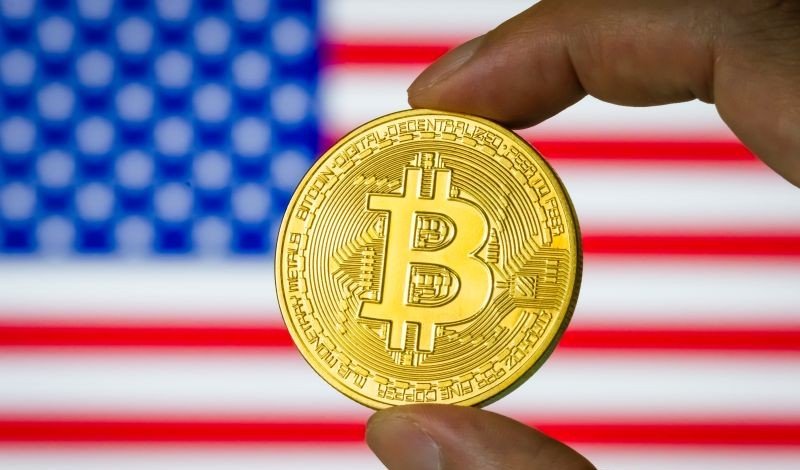Two recent acts of Congress represent a unique approach to digital currency regulation.
The United States made a decisive break with global digital currency trends in July. The U.S. House of Representatives passed the Anti-CBDC Surveillance State Act, which would prohibit the Board of Governors of the Federal Reserve System from issuing a central bank digital currency (CBDC) directly to the public. Days later, President Trump signed the Guiding and Establishing National Innovation for U.S. Stablecoins (GENIUS) Act into law, establishing comprehensive regulation for private, dollar-denominated stablecoins. These are designed to hold a stable value tied to the U.S. dollar, which helps them avoid the price swings of more volatile cryptocurrencies. While this type is common, other stablecoins can be pegged to different assets, such as other fiat currencies, commodities, or other cryptocurrencies.
Together, these measures represent a fundamental policy choice to reject sovereign digital currency while embracing regulated private alternatives. This framework protects financial privacy and promotes market-driven innovation, but it also creates new strategic vulnerabilities that policymakers must carefully consider.
The Anti-CBDC Act would bar the Federal Reserve from issuing, piloting, or implementing any digital currency designed for general public use. The bill’s supporters, led by Representatives Tom Emmer (R-Minn.) and French Hill (R-Ark.), cite risks of government surveillance and “programmable money,” pointing to China’s digital yuan as a cautionary example of state control over individual financial behavior. Banking industry groups argue that retail CBDCs would enable consumers to bypass commercial banks entirely, potentially destabilizing credit intermediation.
House Democrats opposing the act contend that the prohibition may foreclose future monetary policy innovations and financial inclusion tools, particularly during economic crises when direct government-to-citizen transfers might prove essential.
The GENIUS Act takes the opposite approach to digital currency development, promoting it through regulated private channels. Key provisions mandate federal licensing for stablecoin issuers alongside stringent risk management and reserve requirements designed to ensure stability and consumer protection. The law ensures regulatory parity for credit unions and qualifying financial technology companies while explicitly excluding algorithmic and non-collateralized tokens.
Although the Anti-CBDC Act would prohibit government-issued digital currencies, the GENIUS Act establishes formal pathways for private digital dollars under prudential supervision. The policy message is clear: Private innovation receives regulatory clarity and support while public money must remain analog.
This bifurcated approach puts the United States at odds with global trends. More than 130 countries—representing 98 percent of global GDP— are exploring or piloting CBDCs. China’s Digital Currency Electronic Payment project leads global development, with pilots in Shenzhen and Suzhou demonstrating programmable features including transaction limits and expiry dates—tools that could extend beyond domestic monetary policy to international trade settlements.
The digital euro development of the European Central Bank emphasizes privacy preservation, retaining anonymity for low-value transactions while limiting commercial data use. This approach positions the European Union to offer privacy-preserving digital payments that could compete directly with both Chinese state-controlled systems and U.S. private stablecoins.
The regulatory framework emerging from the GENIUS Act and the Anti-CBDC Act creates significant competitive vulnerabilities. First, the absence of a U.S. public digital currency option may diminish American influence over evolving international monetary standards. As other central banks develop CBDCs with embedded compliance features for cross-border transactions, the United States risks exclusion from technical standard-setting processes that could define future global financial infrastructure.
Second, the GENIUS Act’s regulatory clarity, while beneficial for American innovation, creates opportunities for foreign actors to leverage U.S. oversight credibility for global operations. Chinese financial technology companies such as Ant Group and JD.com, previously constrained by American regulatory uncertainty, can now pursue stablecoin issuer licenses in favorable jurisdictions such as Hong Kong and Singapore while planning eventual integration with U.S. dollar-denominated systems. This arrangement potentially allows Chinese platforms to extend global payment services using dollar-backed tokens while circumventing domestic capital controls and geopolitical concerns about the digital yuan.
Finally, widespread adoption of programmable money by foreign governments could systematically reduce the dollar’s role in international trade settlements and sanctions enforcement. If other nations develop CBDC systems that can work with other systems and bypass dollar-denominated clearing mechanisms, the traditional monetary policy effects of U.S. financial sanctions could diminish significantly.
This evolving framework introduces several considerations for U.S. financial sovereignty and global competitiveness. The Anti-CBDC Act would effectively constrain governmental monetary policy flexibility during crises, when direct government-to-citizen digital transfers might prove essential for economic stabilization or pandemic response. While preserving privacy, this constraint may prove costly during future emergencies requiring rapid, targeted financial intervention.
The absence of a U.S. public-sector digital currency alternative may also impede American leadership in developing crucial technical standards for cross-border digital payments, anti-money laundering integration, and broader global financial governance frameworks. As other major economies advance CBDC development with strategic intent, the United States may find itself reacting to standards set by competitors rather than leading their development.
The GENIUS Act introduces potential for regulatory arbitrage, carrying both benefits and drawbacks. Regulatory arbitrage is when an individual or company exploits a loophole or a difference in rules between jurisdictions or regulatory systems to avoid stricter oversight or gain an advantage. It might bring foreign stablecoin issuers under U.S. regulatory oversight––potentially reinforcing dollar dominance. It raises serious concerns, however, concerning enforcement jurisdiction, data security, and the possibility of foreign strategic interests influencing critical dollar-denominated financial infrastructure.
The Anti-CBDC Surveillance State Act and GENIUS Act represent pivotal U.S. policy choices that protect financial privacy and maintain market-driven innovation while creating new vulnerabilities, including diminished global monetary influence and unchecked foreign participation in dollar-backed systems.
As other jurisdictions continue developing digital monetary tools with explicit strategic intent, U.S. policymakers must carefully evaluate whether this approach preserves or undermines American monetary primacy. The risk is not merely technological obsolescence, but strategic marginalization in an increasingly digital global financial system. The absence of public sector tools may limit America’s ability to shape the rules governing international monetary competition.
The coming years will test whether private innovation can substitute for public monetary leadership or whether the United States is inadvertently ceding crucial ground to strategic competitors better positioned to leverage integrated public-private digital financial systems for geopolitical advantage.


